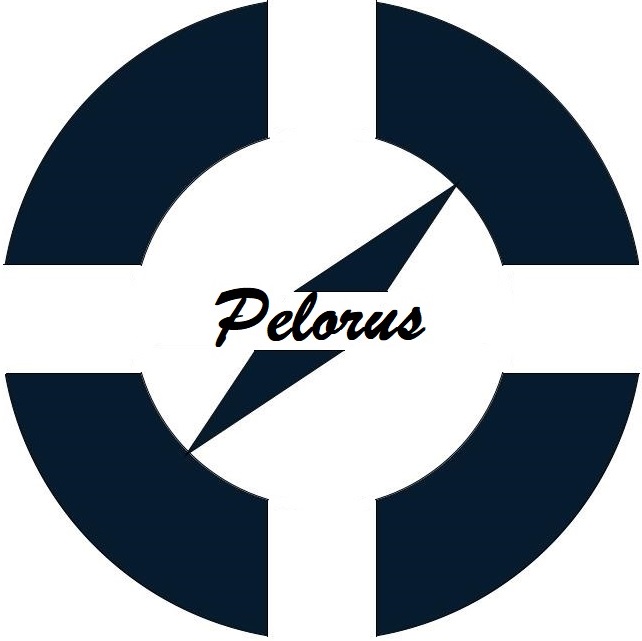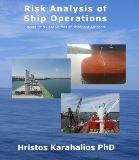2021
Application of AHP-TOPSIS for knowledge evaluation of ship operators
Successful ship operations require skillful people. It is also crucial for a ship management company to be able to evaluate knowledge level of its employees in terms of rational commercial decision-making and providing guidance to the masters. A recent research paper provides a methodology capable of formal knowledge evaluation of ship operators to ensure their professional skills and training need.
Contribution of PSC Authorities to Ship Accident Prevention (New Research)
Historically, several maritime casualties have caused loss of lives or environmental disasters. World states are responsible to eliminate such disasters, along with the improvement and efficiency of goods transportation. To prevent similar cases, states have agreed to enforce international standards to oceangoing ships. For monitoring purposes, each state has empowered its Port State Control (PSC) to inspect foreign ships. Nevertheless, there are arguments that ships are over-inspected while accidents still occur. As a complementary action, some private organisations developed risk-based models, which used inspection results by PSC authorities to rate substandard ships. However, these companies provide the results of ships rating only to their clients. In this paper, it is argued that variations among PSC standards are not included in existing risk-based models. Therefore, in the proposed methodology, a Risk Accident Likelihood Tool is introduced, which is based on the reported ship deficiencies. The innovative idea is that every deficiency is weighted according to the rigorousness of the PSC recording the deficiency. This study shows that the challenges of inspection authorities are mainly caused by insufficient resources or poor organisational issues. Eventually, the proposed risk methodology provides a simplified scoring method. Ships with a high score are more likely to suffer an accident.
2020
Appraisal of a Ship’s Cybersecurity efficiency: the case of piracy. Journal of Transportation Security. DOI 10.1007/s12198-020-00223-1
New information technologies are beneficial for ship operations in terms of safety and utilisation of company resources. However, new cybercrime threats have mergedaffecting, both ship safety and security that need to be assessed and evaluated. At the moment, actions of the maritime industry to keep pace dealing with such threats are slow when compared with other business sectors. As a high concern, maritime pirates could take advantage of cybersecurity breaches to monitor ship activity and gain information for potential protective failures. In 2021 companies and seafarers should be able to demonstrate knowledge and safeguard policies of their companies. Nevertheless, there is limited discussion on how companies will educate seafarers for existing threats. Therefore, in this study, a risk-based methodology is proposed for evaluation of cybersecurity threats in the context of a piracy attack. STPA-SafeSec’s analysis is used to identify security threats, and FAHP is utilised for evaluating the severity of each security constraint. Audits on 15 ships with 315 seafarers indicated that there are significant security gaps mainly due to lack of awareness from operators and seafarers. However, physical security and network protection that already apply to ships are significant security strengths
Application of AHP-TOPSIS for Knowledge Evaluation of Ship Operators
Abstract: The purpose of this study is to provide a formal evaluation tool of individuals that operate ships. These persons monitor daily shipboard operations, and their knowledge is of particular importance in terms of rational commercial decision making and providing guidance to the masters of the ships that are in charge. Poor decisions may have a severe impact on the commercial status of a ship, safety of its crew or marine environment. The proposed methodology could be used by ship managers to measure the knowledge standards and ensure their professional continuity of their operators. The research methodology used in this paper combines Analytic Hierarchy Process (AHP) and TOPSIS to establish a knowledge measurement tool based on a system of key knowledge indicators (KKIs). Experts participated in evaluating the KKIs. Furthermore, a survey to ship management companies was carried out to demonstrate the applicability of the proposed methodology.
A Risk Assessment of Ships Groundings in Rivers: The Case of Parana River
A ship’s grounding appears to be a significant threat to the safety of its crew, marine environment and the local ports economy. The risk of such incidents is higher in rivers since weather conditions can significantly alter the depths of channels from those shown on navigation charts. By means of a fuzzy analytic hierarchy process, a new methodology is proposed, capable of evaluating the hazards of a ship’s grounding in a river. The proposed method contributes to safe navigation in rivers. Navigators are able to assess grounding risk in a river passage based on local information of past incidents. The proposed methodology is used to evaluate commercial risks from groundings in the Parana River. A case study was carried out using data from 118 cases, as provided by local agencies for the period 2008–2017.
2019
Risk Analysis of Ship Operations: Research and Case Studies of Shipboard Accidents. Pelorus
"Ship operations are an exciting business where seafarers execute several activities such as navigation, mooring, bunkering, and cargo handling. However, in the aftermath of notable maritime disasters, world states decided that ship operations should be subject to international regulations.
Nowadays international rules cover a plethora of safety, environmental and occupational shipboard hazards. Consequently, a ship operator should ensure compliance with international and local maritime regulations in order to avoid penalties from authorities and commercial damages. Recent findings show that human error is a primary root cause of accidents.
Modern literature explains how rational practices regarding recruitment, training, development of seafarers and other maritime professionals could mitigate shipboard hazards. In this book, existing bibliography, accident analysis and research findings are discussed with practical applications in ship operations. The author aims to present how current knowledge could contribute to accident prevention."
2018
The Severity of Shipboard Communication Failures in Maritime Emergencies: A Risk Management Approach. International Journal of Disaster Risk Reduction.Volume 28, Pages 1-9
2017
The application of the AHP-TOPSIS for evaluating ballast water treatment systems by ship operators. Transportation Research Part D: Transport and Environment, 52, 172-184.
Effect of Human Behaviour in Shipboard Firefighting Decisions: The Case of Fire in Engine Rooms. Journal of Contingencies and Crisis Management, 25(4), 256-268.
Evaluating the knowledge of experts in the maritime regulatory field. Maritime Policy & Management, 44(4), 426-441.
Other Reading Material
A Risk Appraisal System Regarding the Implementation of Maritime Regulations by a Ship Operator. Maritime Policy & Management, Vol. 42(4), pp. 1-25.
MLC 2006 Compliance: Costs & Benefits. Maritime Trends Conference, Athens, Greece, 8 June 2013.
A Proposed System of Hierarchical Scorecards to Assess the Implementation of Maritime Regulations. Safety Science, Vol. 49, pp. 450–462.
A study of the implementation of maritime safety regulations by a ship operator, In Advances in Safety, Reliability and Risk Management, Ed. Berenguer, Grall and Guedes Soares, Proceeding of 2011, Annual European Safety and Reliability Conference (ESREL), Troyes, France, 18-22 September, pp. 2863-2869.

